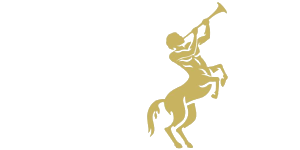-
"Survey return from Joseph Caskay"
Stronsay, Orkney.
1850.
RCP/COL/4/8/184
Joseph Caskay was a church minister in Stronsay.
Stronsay (with Eday) was a united island parish in Orkney. In 1887, the population was 1274. The main industry was agriculture and horse, cattle, and sheep breeding. There were also some fisheries.
[[Addressee]]
The Revd
Joseph Caskay
Stronsay
Kirkwall
[[Survey]]
QUERIES
1. How many Medical Men practice within the Parish of Stronsay and Eday?
There is at present one medical practitioner in this parish, but as he complains of inadequate support it is supposed he will soon leave
2. The Names and Addresses of these.
Dr William Macintosh
Rothsieholm Stronsay
Kirkwall
3. Has the number increased or diminished of late years?
Within the last eight years three individuals have been induced to reside here at different periods for some time, but were obliged to leave, in consequence of non-payment of accounts
4. Have any left the Parish since you became connected with it? If so, for what reasons?
No medical practitioner has been residing here for the last four years with the exception of Dr Macintosh, who is here at present, and who came in June 1849; and the reason he assigns for leaving is want of money.
5. Is there any complaint among the people of inadequacy in the supply of Medical aid?
The inhabitants of this parish (amounting to 2,000) complain very much when no doctor is resident, and even when there is one resident he cannot satisfy everyone.
6. Do you know of any cases of protracted suffering, or of injury by Accident, such as might have been alleviated had proper advice been at hand?
It is surprising how few cases of protracted suffering could be pointed out, yet still there have been many [manuscript damaged]1ses which would have required medical attention and which might have been alleviated.
7. To what extent is the deficiency of qualified Practitioners made up by the efforts of other parties?
There is no one here who pretends to medical skill, with the exception of a superanuated2 school master and the sick nurse, and it is doubtful how far their pretensions could be trusted or borne out.
8. Does your experience enable you to suggest any measure – of general applicability – such as would be likely to relieve to some extent the evils (if they exist) of deficiency in the supply of Medical aid?
The inhabitants of this parish have always subscribed a certain sum (about 40) for a Doctor when he could be prevailed upon to take up his residence here – but as the subscriptions have never all been paid, I would say that a Doctor could not be supported here, unless some benevolent institution were to aid very liberally for the above purpose
9. What Heritors3 are resident, either generally or occasionally, in your Parish?
There are no heritors resident in the parish, and the inhabitants in general are not wealthy, but with the view of obtaining a suitable Doctor, I think that between the Parochial Board4 and the inhabitants, the sum of thirty pounds per annum might be depended upon – exclusive of what the Doctor might realise from practice and medicines. Upon the whole a Doctor would be very much required here, and with a little aid from some other quarter could make a comfortable living.
Joseph Caskey Minister
Explanatory notes:
1. “cases” obscured by tear in survey.
2. Misspelling of “superannuated”.
3. A heritor was a landowner, under Scots Law, whose holdings were sizeable enough for them to be liable for the payment of public burdens such as Poor Law rates, road and bridge assessments and the church minister’s stipend.
4. Following the Poor Law Amendment (Scotland) Act of 1845 parochial boards were set up in each parish to administer poor relief.
